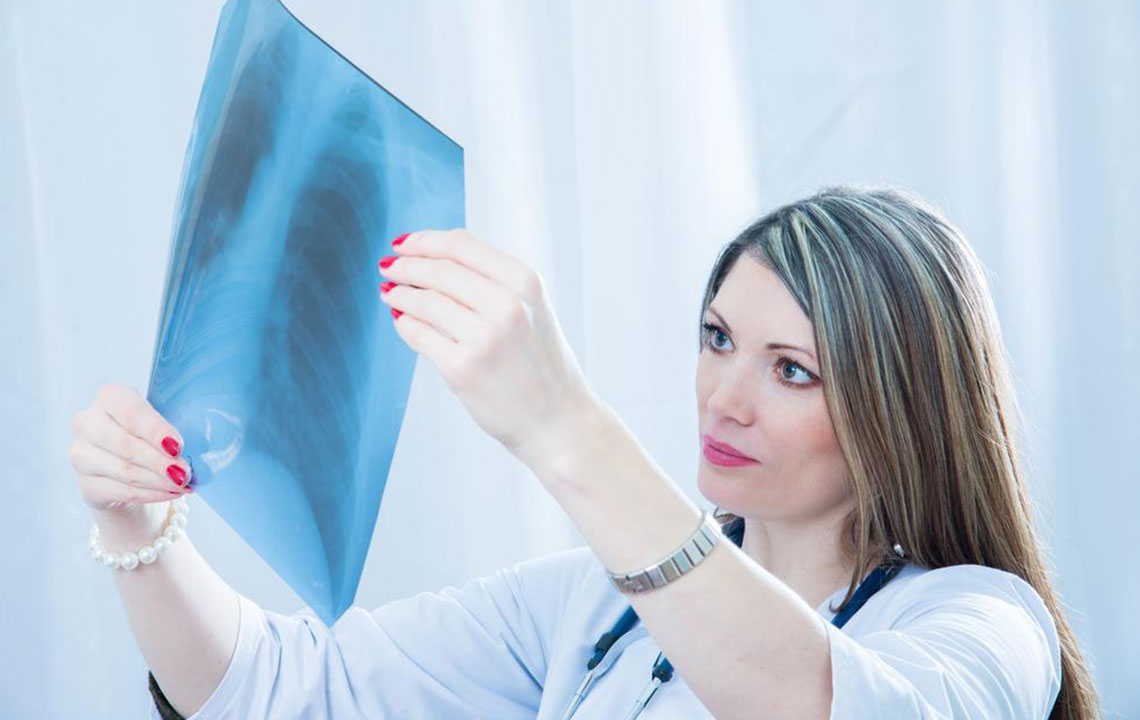Things You Should Know About Pneumococcal Pneumonia
Pneumococcal pneumonia can be considered as a type of pneumonia which infects upper respiratory tract and spreads to lungs, middle ear and nervous system, if not checked in time.
This disease causes pneumonia in children who are less than five years of age or adults who are 65 years or older. Elder people are at more risk of pneumococcal pneumonia and can even die in rare cases.
People who suffer from some medical conditions including chronic heart ailment, liver diseases, and sickle cell anemia are also at a risk of being infected with pneumococcal pneumonia.

Causal Agents
Pneumococcal pneumonia is caused by a range of viruses, bacteria, and fungi. Streptococcus pneumoniae is also known to cause Pneumococcal Pneumonia.
Transmission
Pneumococcal pneumonia is spread when a contact with people who are at risk is established. Also, this bacterium is also carried in the throat. The respiratory droplets of the infected person are also known to initiate the spread of Pneumococcal Pneumonia. Children, in particular, carry this bacteria in the throat even when they are not sick.
Symptoms of Pneumococcal Pneumonia
This infection begins suddenly in a person, and the person might suffer from severe chill symptoms which are followed by high fever, cough, shortness of breath, rapid breathing and chest pain. Nausea, vomiting, and headache are other symptoms of Pneumococcal pneumonia.
Diagnosis
Pneumococcal Pneumonia is diagnosed by the medical health provider based on symptoms, physical examination of the patient and lab tests including some chest x-rays if required. Pneumonia is also caused by other bacteria and germs. If a person suffers from signs of Pneumococcal Pneumonia, the best course of action would be to take immediate medical treatment.
Healthcare providers also diagnose Pneumococcal Pneumonia based on the presence of Streptococcus pneumoniae bacteria in the blood, saliva or the lung fluid.
Treatment of Pneumococcal Pneumonia
Antibiotics are usually prescribed the doctor for treating complications related to Pneumococcal Pneumonia. The symptoms of this medical condition usually disappear with 12-36 hours of taking the medication.
However, bacteria as Streptococcus pneumoniae have been found to be capable of resisting the antibiotics. This resistance has increased over the past few years as the medicines have been used extensively. It is therefore important that whenever the symptoms appear in the first instance, medications should be taken.
Home Remedies for Pneumococcal Pneumonia
Besides seeking medical attention, certain home remedies can also be tried for curing conditions related to Pneumococcal Pneumonia. Below are listed some of the home remedies which can be taken on a regular basis to reduce the incidence of Pneumococcal Pneumonia.
Turmeric as a cure
Turmeric is known to have listed medical properties including its role in treating Pneumococcal Pneumonia. This can be taken in a cooked or a raw manner and will reduce the incidence of Pneumococcal Pneumonia besides strengthening the immune system of the person who takes it.
Basil as a cure
Basil is a natural medication which can also be tried to cure numerous medical ailments including Pneumococcal Pneumonia. It can be taken in juice or tea form, and some ground black pepper can also be added to this mixture for better results.
Alteration in Diet
Besides using the above-listed herbs, some alteration in the diet is also likely to reduce the incidence of Pneumococcal Pneumonia and will help you in fighting with this medical condition. Animal proteins if been taken in excess quantity should be removed from the diet. Alternatively, a person who is suffering from Pneumococcal Pneumonia can increase the intake of vegetables like cauliflower, peas, and eggplants in the diet. Taking this protein-rich diet on a daily basis will help you fight diseases like Pneumococcal Pneumonia and get better in less time.
Prevention of Pneumococcal Pneumonia
Medication and pneumococcal vaccine is the viable way of reducing the chances of having pneumococcal pneumonia. The vaccines for the same are available both for children as well as adults.
People who are 65 years or older and those suffering from long-term health problems as heart disease, sickle cell anemia, lung disease and liver cirrhosis should take Pneumococcal Pneumonia vaccine.
The resistance to this infection also gets lowered due to medical conditions as HIV/AIDS, leukemia, bone marrow, organ transplant and damaged spleen conditions.
Complications of Pneumococcal Pneumonia
In 30 percent of the people who suffer from Pneumococcal Pneumonia, the bacterium can intrude into the bloodstream from the lungs of the person. This leads to bacteremia which is a serious complication. The development of this condition can also cause other lung problems and heart-related problems.
Pneumococcal Pneumonia can turn into a serious health complication if not treated in time. Correct usage of medicines along with a rich and balanced diet will help a person in recovering from this ailment and get back with life.



